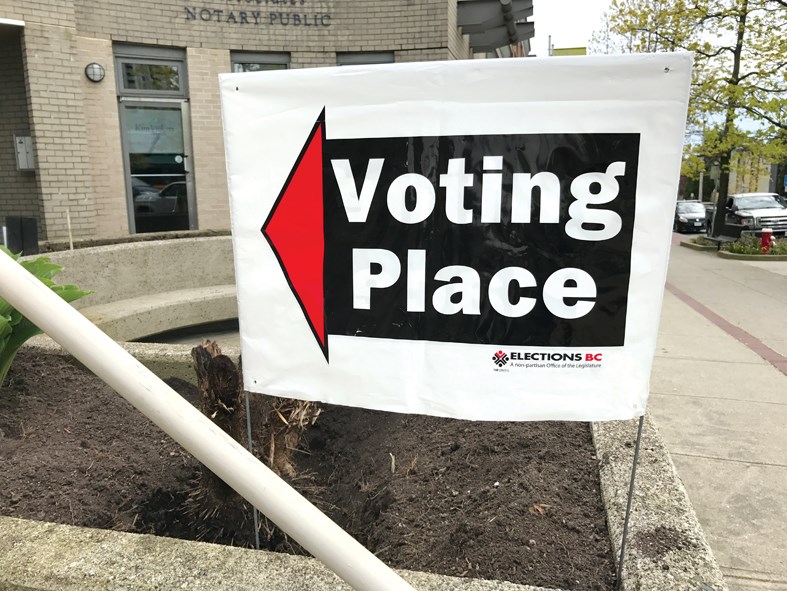The elections are still big: it’s the money that’s getting smaller.
The provincial government announced new rules Monday designed to level the playing field when it comes to municipal politics by banning corporate and union cash as well as limiting individual donations to $1,200.
While the $1,200-limit might be “a little bit rich,” City of North Vancouver Coun. Rod Clark nonetheless greeted the new rules.
“Something is better than nothing,” Clark said. “Is someone going to sell their soul or their vote for $1,200? Probably not.”
The issue was recently broached at a city council meeting in which Coun. Don Bell called on his colleagues to support a Union of B.C. Municipalities motion to ban corporate and union donations.
“If ever there was a motion which applied to the City of North Vancouver, it is this one,” Clark said.
Monday’s announcement, which is slated to apply to the 2018 municipal election, could fundamentally change city politics, according to Clark.
In the 2014 election, Mayor Darrell Mussatto and mayoralty challenger Kerry Morris spent a combined $178,000.
Mussatto received $5,000 donations from both Pinnacle International and RPMG Holdings, the parent company of Onni. Darwin Construction put up $5,125 in two separate donations. Major North Shore employers like Neptune Terminals and Seaspan also chipped in with matching $2,000 donations. The mayor also received donations from the Canadian Union of Public Employees, the Canadian Labour Congress, and CUPE BC, who donated a combined $9,950.
Running on a platform of slowing development in the city, Morris opted to self-fund his mayoralty bid, reaching into his own pocket to contribute $70,911.
Under the new rules, no candidate will be permitted to contribute more than $1,200 to their own campaign.
While he voted against Bell’s motion to back the ban on corporate and union donations, Coun. Craig Keating praised the new rules as “a great piece of legislation.”
In critiquing Bell’s motion, Keating noted the importance of spending limits.
“Language that does not talk about campaign donation limits is, I think to my mind, somewhat deficient,” Keating said at the time.
The new rules also limit how much a candidate can spend on an election campaign based on a per capita formula.
The new rules allow for a greater diversity of opinions to be represented in election campaigns, according to Keating.
Dermod Travis, the executive director of Integrity B.C., agreed.
“It’s going to change how our elections are fought,” he said. “It will improve democracy at the local level because of how they’ll have to fight elections on the ground.”
But while $1,200 is a “suitable limit” for campaign donations, there are still pitfalls to be avoided, warned Travis.
“What we have to do is make certain that corporations and unions and third parties don’t get around that legislation by using straw people,” he said, envisioning a scenario where employers reimburse workers who donate to friendly candidates.
The best way to avoid those scenarios is for donors to have to identify their employers, thereby effectively shutting that door, according to Travis.
“I think it’s going to make a difference at the local government level. You’re going to see less big money getting pushed around in election campaigns.”
Minister of Municipal Affairs Selina Robinson blamed the previous Liberal government for allowing “big money” to dominate politics.
“All people should be at the heart of our politics, not just those with deep pockets,” she said Monday.
Previously, there were no limits on how much money organizations could donate to a candidate’s campaign.
Referring to B.C.’s political climate as the Wild West, Robinson noted a $943,000 donation made to a political party.
Besides banning corporate and union donations, the new rules also forbid contributions from people who live outside B.C.
The regulations should instill a newfound confidence in democracy, according to Oak Bay Mayor Nils Jensen, who pushed for the measures.
“Money can undermine people’s confidence in democracy, and of course big money can undermine confidence in a big way,” he said.



